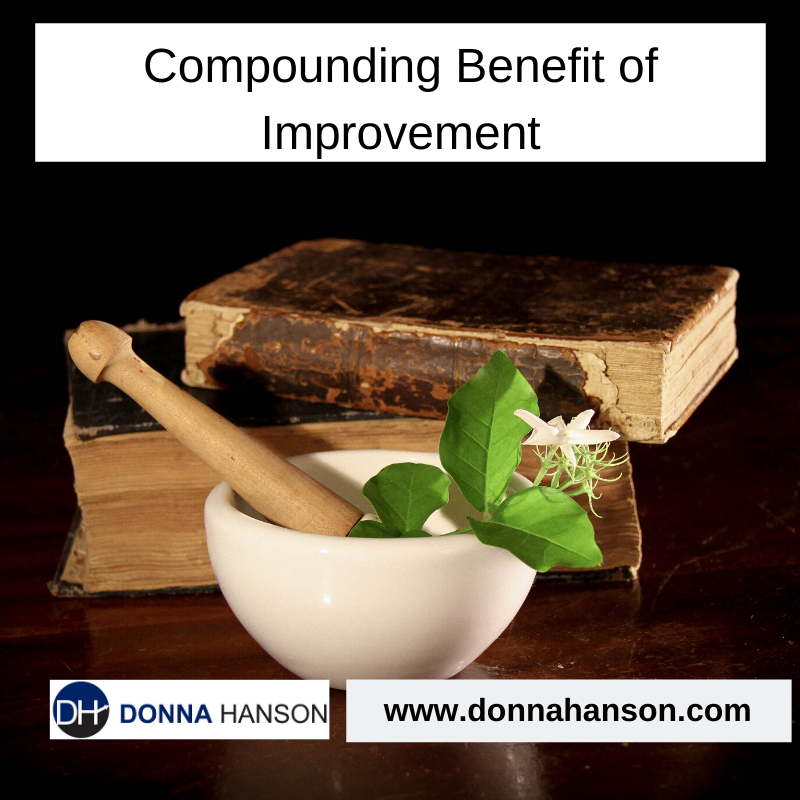The compounding benefit of improvement

Every year I invest in my own professional development. Coaching, mentoring or learning from experts who can help me become better than I was yesterday, last week and last year.
One of my resources is US consultant Alan Weiss (www.alanweiss.com). I’ve invested in attending several of his programs in Australia and the US as well as purchasing books and access to many of his resources.
Alan’s The Tools for Change:1% Solution® says that if you improve by 1% a day, in 70 days you are twice as good.
I was working with a CEO of a machinery rental company when he asked me if I could find where in his Excel spreadsheet some data was being “fed” from.
He told me he had spent “ages” over the past 12 months trying to find the data but to no avail. It’s “no big problem” he told me, yet he was investing time and effort into finding the answer and continuing to do so.
I asked a couple of questions, told him to right click on a tab, click an option and Voila! He could see the data he had been looking for during the last twelve months!
The first thing to come out of his mouth was: “Well that was easy!”. Everything is easy when you know how. When you know how to do something, the next time doing it is faster, we increase our productivity, our efficiency and our confidence.
For every ONE thing we do, 1, 2 or 5 minutes faster today because we learnt something new, that time saving is compounded. We get an additional return on investment every time we use that skill again as we are no longer doing things the old way.
It can be easy to dismiss the value of trying to find a better way to do something, by talking to a colleague or exploring with your team better practices, because of time pressures. But when you do make a change and get improvement, the compounding effect of that productivity or process improvement can have a 2 to 10x’d across your productivity in future months and years.
What do you do that you know could be done more efficiently, releasing time on a compounding basis for you? Why not take the first step to getting more done. I’d love to help.

